Ankara Yıldırım Beyazıt University, Faculty of Medicine, Dept. of Medical Genetics
Ankara City Hospital, Genetics Diseases Diagnostic Center
Ankara Yıldırım Beyazıt University, Faculty of Medicine
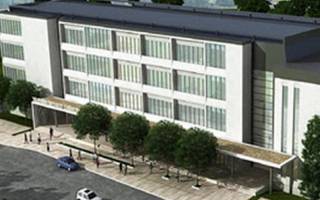
Ankara Yıldırım Beyazıt University supports almost 4,000 academic staff who offer education to 14,000 Turkish and international studies across 10 faculties, 2 vocational schools,1 State Conservatory, 3 Institutes and 1 Core Research Center. The Faculty of Medicine consists of 44 different departments with 330 academics who provide medical education to 2,400 students in Turkish and English.
Ankara City Hospital
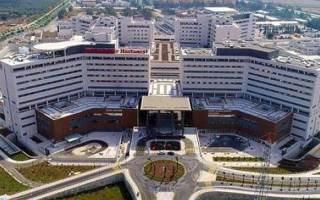
Opening in 2019, Ankara City Hospital is a new and very large hospital complex supporting almost 4,000 inpatient beds across 1,300,000m² of floorspace. Inpatient capacity is supported across the General Hospital, Children's Hospital, Maternity Hospital, Hematology-Oncology Hospital, and Cardiovascular, Neurology-Orthopedics and Intensive Care Units. The Ankara Genetics Diseases Diagnostic Center is at General Hospital building.
Centre Principal Investigators:
Haluk Aydin Topaloğlu, MD, Professor of Paediatrics and Neurology
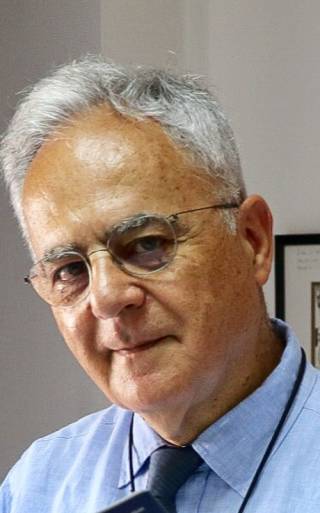
C. Nur Semerci Gündüz, MD, Professor of Medical Genetics Ankara Yıldırım Beyazıt University, Faculty of Medicine, Head of Dept. of Medical Genetics Ankara City Hospital, Genetics Diseases Diagnostic Center
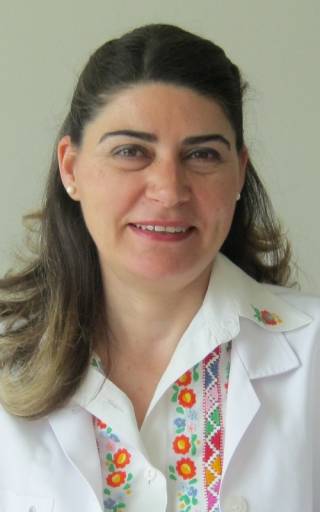
Co-investigators:
Gülay Güleç Ceylan, MD, PhD, Associate Professor of Medical Genetics
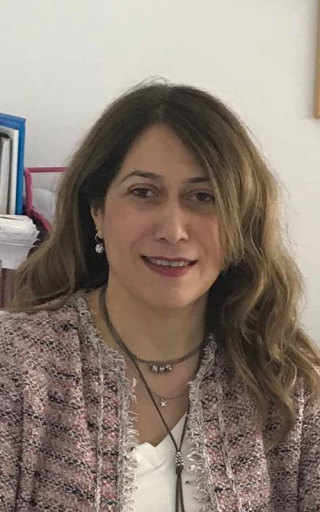
Ahmet Cevdet Ceylan, MD, Assistant Professor of Medical Genetics
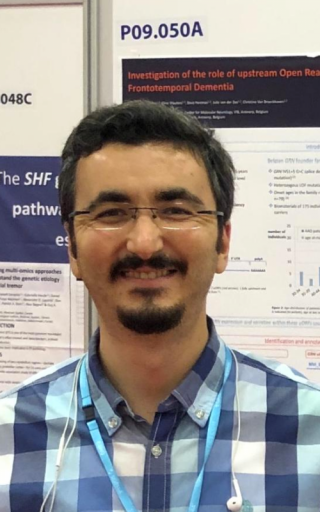
Büşranur Çavdarlı, MD, Specialist of Medical Genetics Ankara City Hospital, Department of Medical Genetics, Genetics Diseases Diagnostic Center
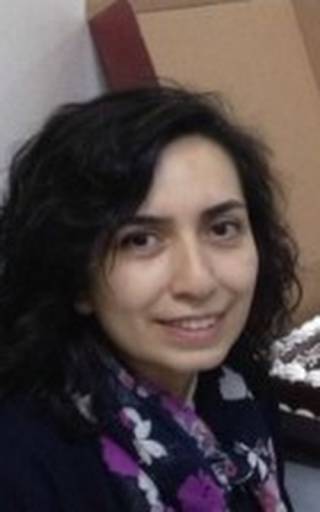
ICGNMD Clinical PhD Fellow:
- Clinical neuromuscular expertise, patients and geographical region
In the medical genetic outpatient clinic of Ankara City Hospital we examine neuromuscular patients referred from the child neurology clinic of Ankara City Hospital, other clinics in Ankara, and cities across Turkey. These patients constitute 5% of our total patient cohort and include suspected Duchenne muscular dystrophy and spinal muscular atrophy, Iimb girdle muscular dystrophy, congenital muscular dystrophy, congenital myasthenic syndromes, metabolic muscle disorders, Charcot Marie Tooth Disease, other hereditary polyneuropathies.
Patients with a pre-diagnosis of neuromuscular disease are evaluated at the medical genetic outpatient clinic for medical history, clinical features and pedigree analyses. This informs the choice of relevant, in-house genetic tests including chromosome analysis, chromosomal microarray, DMD MLPA, SMA MLPA, Charcot Marie Tooth MLPA, NGS panels (Duchene muscular dystrophy panel, muscular dystrophy panel, Charcot Marie Tooth neuropathy panel, autosomal recessive disease panel, clinical-exome panel and mitochondrial panels). Those patients who remain without a genetic diagnosis after this are evaluated by the genetic council for performing whole exome sequencing. A genetic diagnosis is currently deliverable in approximately 20-50% of neuromuscular disease patients.
- Genetics and preclinical science expertise and facilities:
Ankara Yıldırım Beyazıt University supports almost 4,000 academic staff and 14,000 Turkish and international students. Its activities span 10 faculties, 2 vocational schools, 1 State Conservatory, 3 Institutes and 1 Core Research Center.
The Faculty of Medicine and Ankara City Hospital entered a shared-use agreement in 2019 to facilitate medical research.
The Ankara City Hospital Genetics Diseases Diagnostic Center consists of outpatient clinics, and laboratory divided into 3 subsections of prenatal and postnatal cytogenetics, molecular cytogenetics, and molecular facilities, and supports 10 medical geneticists, 3 medical genetics residency students, and 18 laboratory staff. Medical Genetics laboratories are supported via state-private enterprise co-operation, with laboratory staff supported by Siemens Healthineers). In its first 18 months after opening in Febraury 2019, over 25,000 patients were referred from across Turkey to be genetically tested and diagnosed with various genetic diseases including learning disorders, facial dysmorphism syndromes, neuromuscular or metabolic diseases, skeletal dysplasias, sex developmental disorders, endocrinological disorders, hematologic malignancies, hereditary cancer syndromes, and dermatological diseases.
- Current research programmes:
Dr. Semerci Gündüz is interested in elucidating the genetic etiology of the dysmorphic syndromes especially anophthalmia-microphthalmia and triphalangeal thumb-preaxial polydavtyly. She is experienced in prenatal and postnatal cytogenetics, molecular cytogenetics and DNA sequencing.
Dr. Gulec Ceylan is interested in rare diseases and cancer genetics. She also has specialist expertise in DNA sequencing and molecular analysis techniques.
Dr. A. C. Ceylan is interested in rare diseases. He has experience of chromosomal microarray analysis and next-generation DNA sequencing analysis.
Dr. Kurt is interested in rare diseases. He has experience of molecular cytogenetics, real time PCR and DNA sequencing analysis.
Dr. Cavdarli is interested in the clinical and molecular diagnosis and management of rare diseases including dysmorphic syndromes, neurogenetic and metabolic diseases. She is experienced in targeted next-generation panel analyses as well as whole-exome sequencing. Dr. Cavdarli has also a great interest in clinical bioinformatics including big data analyses, variant interpretation, and clinical reporting.
- Top 5 publications from the past 5 years
Semerci CN, Kalay E, Yıldırım C, Dinçer T, Ölmez A, Toraman B, Koçyiğit A, Bulgu Y, Okur V, Şatıroğlu-Tufan L, Akarsu NA. Novel Splice-Site and Missense Mutations in the ALDH1A3 Gene Underlying Autosomal Recessive Anophthalmia/Microphthalmia. Br J Ophthalmol;98:832–840 (2014).
Dinçer T, Yorgancıoğlu-Budak G, Ölmez A, Er İ, Dodurga Y, Özdemir ÖM, Toraman B, Yıldırım A, Sabir N, Akarsu NA, Semerci CN, Kalay E. https://www.ncbi.nlm.nih.gov/pubmed/28832566 Eur J Hum Genet. 2017 Oct;25(10):1118-1125.
Ceylan GG, Önalan E, Kuloğlu T, Aydoğ, Keleş İ, Tonyalı Ş, Ceylan C. Potential Role of Melastatin-Related Transient Receptor Potential Cation Channel Subfamily M Gene Expression in the Pathogenesis of Urinary Bladder Cancer. Oncology Letters, 2016;12:5235-5239.
Ceylan GG, Ceylan C, Gülmemmedov B, Tonyalı Ş, Gözalan A, Keleş İ, Öztürk E. Polymorphisms of eNOS, catalase, and myeloperoxidase genes in prostate cancer in Turkish men: preliminary results. Genet Mol Res. 2016 Aug 19;15(3).
Ceylan, A. C., Erdem, H. B., Şahin, İ., & Agarwal, M. (2020). SMN1 gene copy number analysis for spinal muscular atrophy (SMA) in a Turkish cohort by CODE-SEQ technology, an integrated solution for detection of SMN1 and SMN2 copy numbers and the “2+ 0” genotype. Neurological Sciences, 1-10. DOI:10.1007/s10072-020-04365-x.
Ceylan, A. C., Arslan, E. A., Erdem, H. B., Kavus, H., Arslan, M., & Topaloğlu, H. (2020). Autosomal recessive spinocerebellar ataxia 18 caused by homozygous exon 14 duplication in GRID2 and review of the literature. Acta Neurologica Belgica, 1-6. DOI: 10.1007/s13760-020-01328-z.
Cavdarli B, Percin EF, Karaoguz MY, Ergun MA. Diagnostic yield of molecular karyotyping of idiopathic intellectual disability patients ended with one causative anomaly; duplication 9q34 syndrome. Gazi Med J,2019; 30: 252-257 10.12996/gmj.2019.64.
Yuksel, D., Oguz, K. K., Azapagası, E., Kesici, S., Cavdarli, B., Konuskan, B., & Topaloglu, H. (2018). Uncontrolled inflammation of the nervous system: Inherited CD59 deficiency. Neurology: Clinical Practice, 10-1212.
 Close
Close

